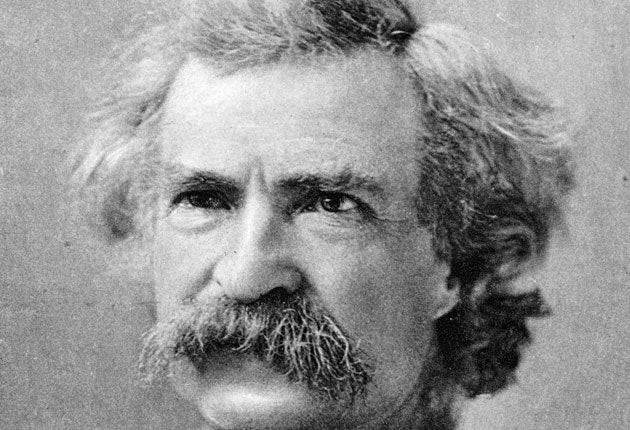To some, Huckleberry Finn is getting a welcome makeover for the 21st century. To others, the greatest American novel is being sacrificed at the altar of political correctness. Either way, a new edition of Mark Twain's most famous book has deleted all 219 of its mentions of perhaps the most incendiary word in American English: nigger.
Claiming they want Adventures of Huckleberry Finn to reach as wide an audience as possible in an era when schools and libraries are painfully sensitive to the ins and outs of racial politics, NewSouth Books, an Alabama publishing house, announced yesterday that the term "slave" will henceforth be used instead.
The man behind the move, the new edition's editor, Dr Alan Gribben of Auburn University, said he hoped to ensure that Twain remains required reading for schoolchildren who might otherwise feel that his casual use of the N-word creates a "barrier" to their enjoying the work.
"This is not an effort to render Tom Sawyer and Huckleberry Finn colour-blind," he told reporters. "Race matters in these books... It's just a matter of how you express that in the 21st century."
In addition to removing "nigger" from Huckleberry Finn, Dr Gribben has altered the word "injun", in its sister text The Adventures of Tom Sawyer, so as not to offend Native Americans. The name of the villain in that book duly changes from "Injun Joe" to "Indian Joe".
The publisher's blurb celebrates this as "a bold move, compassionately advocated". But Dr Gribben admitted that his new edition would dismay traditionalists. "I'm hoping that people will welcome this new option, but I suspect that textual purists will be horrified," he said. "Already, one professor has told me he is very disappointed."
A chorus of academics, teachers and readers yesterday criticised efforts to rewrite Twain's famous prose as a misplaced exercise in literary censorship.
The plot of Adventures of Huckleberry Finn is explicitly progressive, they noted. The book's eponymous hero, a white youth, befriends an escaped slave. He then hears how he has been mistreated by his white master (or rather mistress) and helps him to win freedom.
Thomas Wortham, a prominent Twain scholar at UCLA, compared Dr Gribben to Thomas Bowdler, the British editor of the 19th century who created a notorious "family" version of Shakespeare, which removed all sexual themes so as not to offend Victorian wives and children. "A book like Professor Gribben has imagined doesn't challenge [readers] to ask, 'Why would a child like Huck use such reprehensible language?'" he told Publishers Weekly.
Ironically, Twain, who died in 1910, was a passionate critic of racism, and donated money to a number of civil rights organisations. But his failure to use politically correct language in Huckleberry Finn, which was published in 1885, has nonetheless long been a bone of contention.
In 1957, the New York City Board of Education removed the novel from circulation in elementary and junior high schools. Today, it remains the fourth-most banned book in American schools, according to Banned in the USA, an influential book about literary censorship.
The black author Toni Morrison, meanwhile, addressed the enduring controversy in her introduction to the current Oxford edition of Huckleberry Finn. She admits that the repeated use of the term disturbs her, but nonetheless criticised efforts to remove the book from schools and libraries.

Join our commenting forum
Join thought-provoking conversations, follow other Independent readers and see their replies
Comments